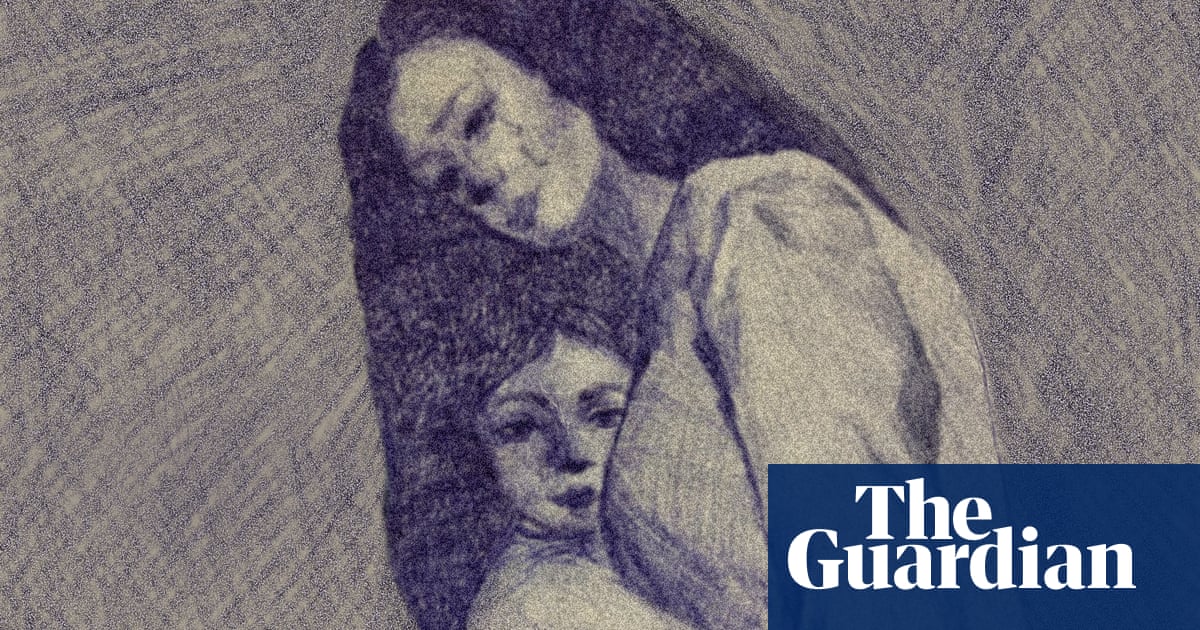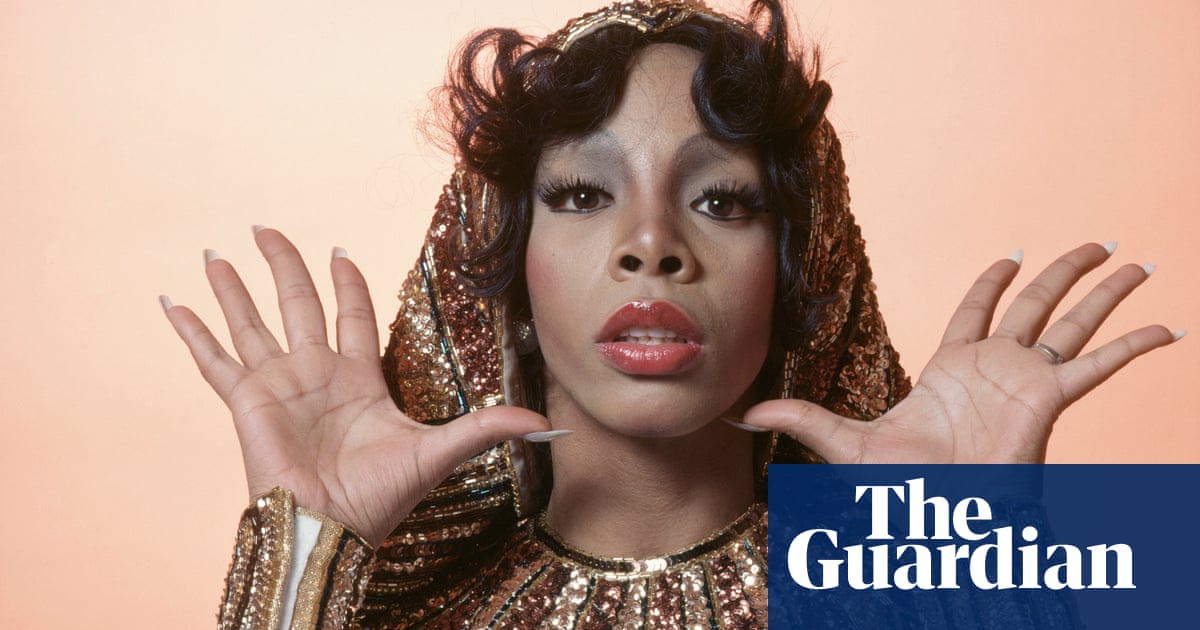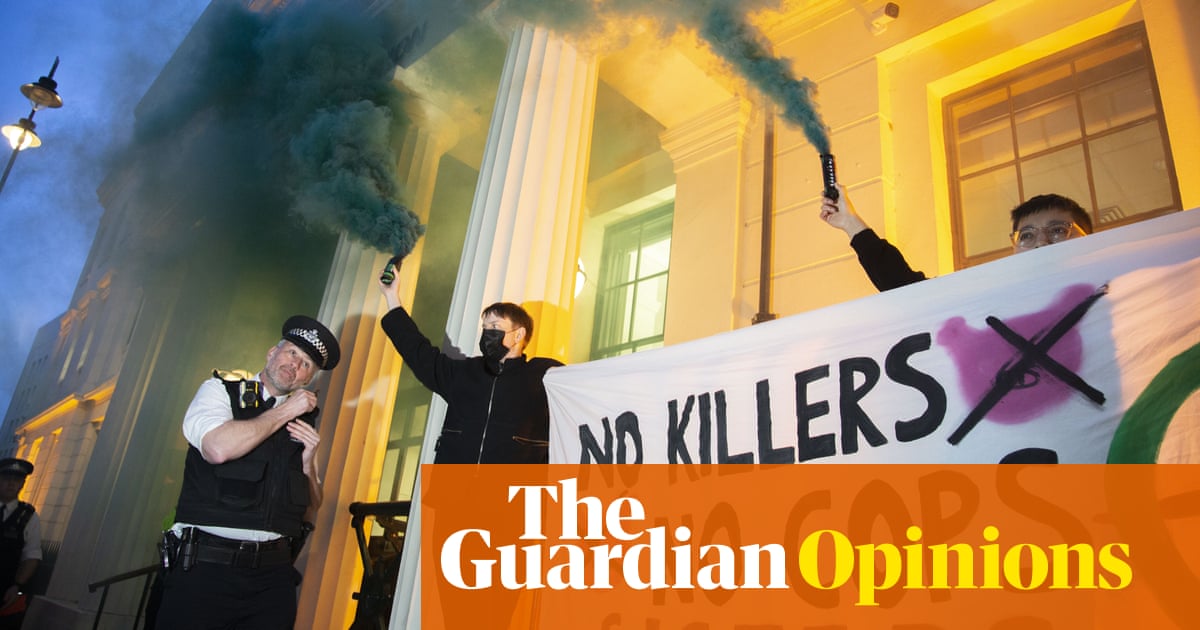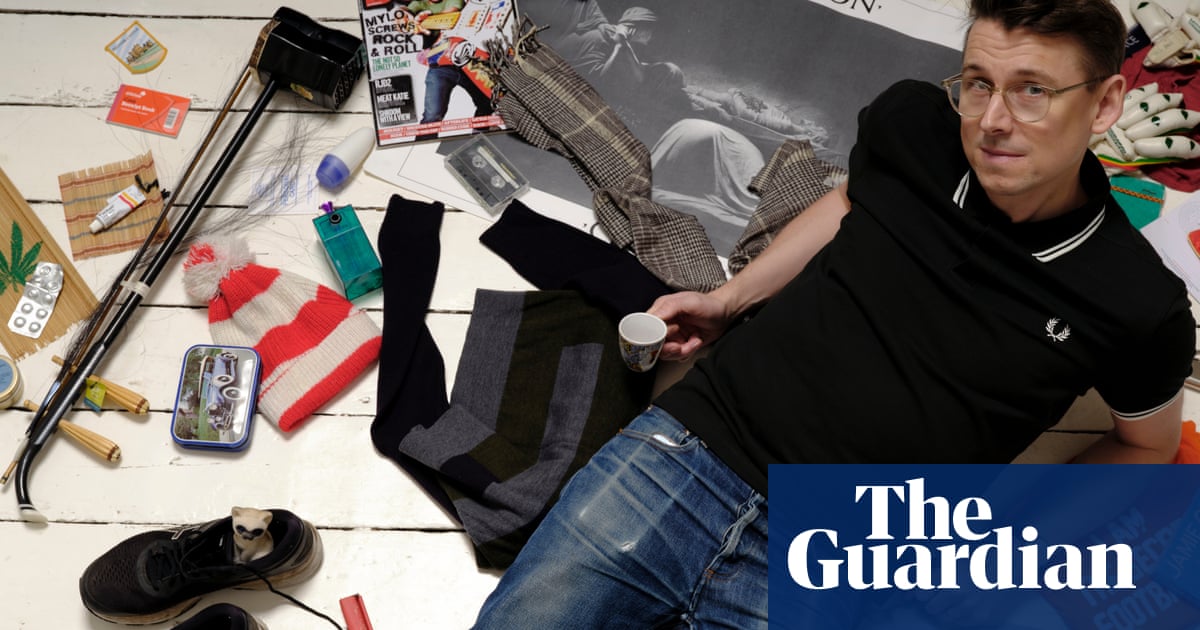
have always wanted to be a comedian or television presenter, but never knew how I’d make it happen. After years of working in TV production, pestering executives to put me in a show, I conceded that I might have to demonstrate to them what I could do in order to prove my worth. This is how I ended up spending a Friday afternoon in April 2015 secretly writing a standup show at my desk, hoping to one day take it to the Edinburgh fringe.
“Bella,” said my boss, Faye, over the top of her computer, “can you do some research on wellness, please? Someone called Deliciously Ella’s got the fastest-selling cookbook in the country and I want to know if we should put her on the telly.” I had been blissfully unaware of wellness until that point. As far as I was concerned, it was just the opposite of illness, like not having a cold. The idea that you could be more well had never crossed my mind.
Sure, I had noticed that more of my friends were going to yoga and buying NutriBullets, but hadn’t understood this was part of a wider trend. It soon became clear that middle-class consumers were worshipping at the wellness altar. If wellness was a religion, then Gwyneth Paltrow was the pope, and Deliciously Ella the archbishop of Canterbury. Ella Woodward (now Mills) had used what she called her “lifestyle not diet” to manage a chronic pain condition. She had written a popular blog about how she did it, claiming that cutting out sugar had allowed her to manage it. Ella was model-beautiful and well connected (her mother is a Sainsbury). Her feed was full of comments from gushing women admiring her perfect life and thanking her for saving them from their disgusting, sugar-filled lives. There were countless other “wellness warriors”, who claimed to have cured everything from IBS to eczema. They were all beautiful, slim and upper middle class. If we gave them a TV show, we’d be legitimising them.
“I’m not going to let some rich stick insect tell me what I can and cannot eat!” I barked at Faye.
“Just ask yourself whether they’d make good telly,” Faye said. I was certain none would. Through wan smiles, they talked about “glowing” while arranging ingredients in bowls and calling it cooking. My lifestyle kept me reasonably slim, although in less abstemious ways. I’d been living as a sufficiently functioning swamp demon for some time, powered by wine, fags, Diet Coke and junk.
“What on earth do they mean by ‘eat clean’?” I grumbled. “As if vegetables pulled from the mud are cleaner than a Snickers that comes out of a wrapper.”
“All right, Deliciously Bella,” Faye said, “why don’t you start your own blog about the merits of drinking for three days straight before nourishing your body with 11 Domino’s pizzas and a vat of Ben & Jerry’s?” I laughed it off, but started looking for online wellness parodies. I couldn’t find any.
Maybe it could be funny, I thought; maybe this could be part of a future Edinburgh show. I searched the name Deliciously Bella and found the account already existed (a woman in Australia was busy documenting badly lit puddings), so I settled on Deliciously Stella instead. I found a picture on my phone of me suffering from the worst hangover of my life; I was covered head to toe in pizza boxes and smoking a fag. I captioned it as if I were a premier wellness guru, using all of the wellness warriors’ hashtags: “a perfect end to a perfect day. #eatclean #deliciouslystella #5aday #readyformonday”. That should spice up their explore page, I thought. Then I got back to work.
can’t pretend that posting less-than-flattering pictures on Instagram wasn’t nerve-racking. I wasn’t so self-assured that looking disgusting didn’t matter to me, Bella, but “Stella” didn’t worry about her weight or what other people thought. All she cared about was eating snacks, drinking beers and having a laugh. She had no shame, and I had so much. Being her felt incredible.
As Deliciously Ella’s career continued to rocket (she currently has 2 million followers and a successful food line), mine slowly began to gather pace. I realised people reacted best to images that directly parodied other people’s content. A packet of strawberry laces – unremarkable. A packet of strawberry laces coming out of a spiraliser while I smiled manically in a Breton top? Gold.
Because I was playing a character, I felt no shame in commenting on every account I could, hoping to pick up new followers; I was gaining roughly 100 a day. Faye banned me from looking at my phone during office hours. I thought less about what the account could do for my Edinburgh show and more about what it could do for me. Within five weeks I had almost 1,000 followers and Stella appeared in a tiny corner of Grazia in an article on fad diets.
“Do you think I’ll get recognised on the tube?” I asked Faye, who had rightly confiscated my copy of Grazia.
“Bella, there isn’t even a picture of you in the magazine. Please get back to work.”
I started gaining a following from the very wellness women I was poking fun at, and was soon invited to one of their book launches. I got into conversation about my forthcoming Edinburgh show with an American yogi who starred in the reality show Ladies Of London.
“What are you gonna do? Are you gonna cook food on stage?” she asked.
“Oh no,” I said, “the show isn’t about Deliciously Stella.”
She gently grabbed my arm. “Honey,” she said, “you need to give the people what they want.” This threw me into existential turmoil. Did people really prefer my alter ego to me? Should I rewrite my show? I don’t know what I was more nervous about: doing a show as Bella, or not doing it as Stella. But by the time the fringe came around, I had 10,000 followers and managed to draw in an audience, even as me. It was a success, so much so that I managed to bag an agent. Somebody even recognised me on the street. I spent the rest of the day on cloud nine.
My new agent invited me to a showbiz party. The end of the fringe bled into the Edinburgh television festival, and the city was filled with TV’s decision-makers (and 50% more cocaine). Agents wheeled around their new signings with rictus gurns, and for the first time I felt as if I could finally relax.
“Next year,” they said, “you’ve got to do a show as Stella.”
t my peak, I had almost 150,000 followers, but I still never described myself as an influencer. I wanted to be the Instagram cool girl, the renegade who sat on the sidelines, satirising the people who really cared. But I really cared. I thought I could have lots of followers without needing followers. I thought I could monetise my account without selling out. I thought that I was different, that I wasn’t like other girls.
But other people didn’t see it that way. The first time I realised that my online and offline self had become one was during a meeting with a production company. Two ecstatic producers had ushered me into a meeting room, giggling like schoolgirls. “We’ve got a surprise for you!” they squealed. “We’ve put on a Deliciously Stella spread!” An anxious runner tottered in with a tray. It was overflowing with confectionery. Haribo fried eggs, fizzy laces and Sprite. A diabetic death at 9am. “Would you like a coffee or a green juice?” they asked, with a nudge and a wink. I reached for the Sprite and laughed. “You know me so well!” The Sprite soured as it hit the dregs of that morning’s toothpaste. “We just love you, because you’re so real.”
The blurring of the line between Stella and Bella was becoming increasingly problematic. I’d noticed myself modifying my behaviour to better fit the habits of my alter ego. My DMs started to fill with women thanking me for helping them with their body image issues. If I could love myself, they said, they could, too. It felt good to help, but I was confused. Was I cheating the system by promoting junk food while maintaining an accepted body type, or was I actually helping women with disordered eating?
I am a cisgender white woman who oscillates between a size 10 and a size 12: a poster girl for the disfranchised I am not. It’s a damning indictment of the perfection required from women on Instagram at the time that my untoned arms were considered revolutionary at all. I was praised for being #brave for revealing my ab-less torso, and “crazy” for putting ketchup on my face. (On reflection, maybe the ketchup was crazy. The smell of vinegar didn’t leave my hair for days.) I wondered if it was a problem that I didn’t always feel as body confident as Stella. Did I want to be the face of junk food?
I needed likes; likes led to money and exposure, which led to more work. What I wanted and what the people wanted had become intertwined. When my agent insisted that I perform my next comedy show as Stella, it made sense. At that point, everyone thought I was her anyway. Stella and I were trapped in a bad marriage, but I knew she was my meal ticket. I resented her and the fake “authentic” life she’d given me.
y newfound notoriety was like pouring petrol on a raging fire. I had never been the prettiest in the room, the loudest, the most confident, but now I was minorly famous, and it made me feel as if I dazzled.
I got a book deal with Penguin, for a collection of healthy recipes made out of sweets. It made me feel rich, even if it was only worth a £6,000 advance (paid in instalments). Once I started writing it, I found that I’d been more excited to sign the deal than I was to release the end result. I’d been peddling the same joke over and over. Why anyone would buy it when you could find most of the content on my Instagram page?
Still, my star was on the rise, and I started getting gifts from small brands. At first it was baked goods; soon it graduated to clothes and jewellery. Almost everything was either food-themed or emblazoned with “Stella”. I didn’t need the stuff, but said yes to it all.
“Maybe I’ll be the first one to buy a house without help from their parents,” I suggested to my friends. I was powered by the smoke being blown up my arse. I took to doing press like a duck to water, never turning down an opportunity to tell my life story. Eventually I wangled my way into the MailOnline, for an interview peppered with some of my more hideous Instagram posts.
“So. Are we laughing or are we crying?” my flatmate Liv asked as I scrolled down into the dreaded comments section. The usual suspects were there, calling me ugly or fat. But the winner of most creative remark must go to the man who said I looked like “an orc on a day trip to Earth”. Liv looked at me for permission to laugh. “Go on,” I huffed, “fill your boots.”
Liv and I had bonded over our shared bouts of anxiety, and I’d been pretending for a while that mine was lying dormant. Although the rational part of my brain knew that I can’t be for everyone and everyone isn’t for me, I couldn’t help but take criticism personally. I also suffered from seasonally affective disorder, and found every autumn extra hard. Usually I’d just ride it out, switch on my light box and start going to therapy, but now I needed some extra help.
I’d been on and off SSRIs since I was 21, usually discontinuing them because of side-effects. I booked an appointment with my psychiatrist and explained what was going on: I had gone viral on Instagram and was busy trying to get more people to follow and like me. Could he help? (I explained that under no circumstances was he to put me on the pills that stopped me orgasming.)
“Have you spoken to your therapist about the ‘like’ thing?” he asked. “Sure,” I lied. He prescribed me a drug called Mirtazapine. The only side-effect I had to worry about was weight gain; I decided it was worth the risk. I reasoned that I didn’t yet feel bad enough to take the pills, but I wanted them there, just in case.
Between work, the book, press interviews and Instagram, I was starting to burn out. Without other influencer friends or a dutiful other half, I often had to ask whoever was in the vicinity to take a photo of me. Did they think I was silly and vacuous? I tried to ignore the whisper of my low self-esteem, but soon I was unable to sleep. I staggered through my day job like a zombie, then went home to drink wine until I passed out, waking a couple of hours later with an anxious start. I decided to take the pills.
Almost immediately, I knew something wasn’t right. After three days of nausea, dissociation and increasingly erratic behaviour, my psychiatrist suggested that I head to A&E. The doctors thought the Mirtazapine might have triggered a manic episode and wanted to investigate the possibility of my being bipolar. I was terrified. I told them that I’d been fine a couple of weeks before; it was just a bad reaction to the pills.
I tried to escape by going away with friends, but after bursting into tears in a strip club and fake-tanning one of my toes with no recollection, I knew I couldn’t look after myself. I ended up fleeing the holiday and flying home to my parents’ house. I asked my father to quit my job for me and was diagnosed with bipolar over Skype.
A week later, my mum came into the bedroom to wake me up. “How do you feel, darling?” “Well,” I answered, “I’m 28, I’m unemployed, I live with my parents and I’ve had a nervous breakdown.”
And then I shat myself. I’d decided to treat myself to a whole antipsychotic to mark my birthday, and my poor stomach couldn’t take it. Once I’d recovered, I called my sister. I was laughing so hard she thought I was crying. When I told her what had happened, she erupted in giggles. Mum rolled her eyes. “Only my child could shit herself and be the happiest she’s been in weeks.”
Yet none of this made me want to change my social media strategy. As far as I was concerned, Instagram followers were my ticket to fame and fortune. Surely, if I reached a certain number of followers, that would stop me feeling sad. Loads of people had started doing ads on Instagram and, while I wasn’t about to promote charcoal toothpaste or flat-tummy tea, I thought I’d found a pretty good niche. I obligingly shook a tin of frankfurters to advertise the film Sausage Party and launched “the beef lips challenge” to see which of my followers could hold a Peperami between their nose and top lip the longest. The line between my character and what she was supposed to be parodying became blurred further.
I startled my mum one day when I screamed and punched the air. “I’ve just got 1,000 likes in 10 minutes!” Whether I hit 1,000, and how quickly, was my gauge of mentally determining how well my life was going. It was like rolling a six or pulling an ace. I had become addicted to the high. My relationship with social media had crossed over from problematic to deranged. I had not slept for more than a few minutes at a time for seven days. I ran through all the downers I’d taken to try to dull my zapped-out brain. Enough to tranquillise a dinosaur, and still I was awake. I’d suffered from insomnia since I was a child. Now I sat up and scrolled; I never had to be alone with my thoughts.
Eight months after starting the account, I hit 100,000 followers, and to celebrate I took a picture of myself in my underwear, covered in Happy Meal boxes. The number immediately slipped back down to 99.9k. I was treating Instagram like Candy Crush, emoji-bombing strangers in an attempt to lure them over to my page. If I can get to 100,500 I’ll be safe, I thought. A change in algorithm had seen my engagement drop dramatically, which meant I was now getting far fewer likes and comments.
I’d also seen the tide turn on the clean-eating era. Wellness wasn’t going anywhere, but the food fad I’d so accurately satirised was dying out. Wellness witches were cutting ties with “eat clean”. The term had been vilified by dietitians, its links to an eating disorder called orthorexia – an obsession with only eating food believed to be healthy – becoming more widely known. I felt the slow creep toward irrelevance.
I was on a train to a gig when the realisation hit me. I called my mum: “I don’t think I know who I am.”
The next day I told my doctor that I felt that if I got out of bed, I would surely die. I explained that I hadn’t slept in weeks, that I wanted to live out the rest of my existence alone, in a cave, or I didn’t want to live any more. He asked if I had private health insurance, then admitted me to the Priory. I stayed for a month. But it didn’t stop me posting. I continued gigging on day trips out of rehab; not even hospitalisation could quell my need for validation.
Eventually, after trawling confectionery aisles and realising I had well and truly wrung the joke dry, I seriously considered what life would be like without Deliciously Stella. Quitting Stella didn’t mean quitting Instagram, I reasoned. It was the character I’d fallen out of love with, not the app. I bit the bullet, and decided to kill her. I posted a black and white picture of myself frowning, and wrote that Stella had fallen into a food coma – and the prognosis didn’t look good.
I wish I could say that I’ve left social media behind, that I’m not affected by likes and follows. Yet I can’t help but love to be loved. Last year, in the throes of the first lockdown, I felt compelled to entertain. I dressed up as the Tiger King and showed off my growing collection of crocs. Old habits die hard, and when one day I got 4,000 likes on a post, I was elated. When subsequent posts didn’t perform as well, the feeling of dejection returned. I doubled down on therapy, and then, when lockdown lifted, I fled to live in Spain. The sort of uninspirational content my followers so enjoyed became nigh-on impossible to create. I posted sun-kissed shots of days at the beach, and people unfollowed in their droves.
Since leaving London, I have managed to come off antidepressants and conquer my insomnia with cognitive behavioural therapy. I now know that just one post on my Instagram grid is enough to make me spiral. A fact that will no doubt affect my ability to publicise my book about my experience.
It has taken my real life being full to realise how empty my life lived through pixels had become. Being funny doesn’t matter if you’re not having fun. I still want people to like me; I want them to think I’m funny. The difference now is that I know I am liked, without needing strangers to confirm it. I’ve kept my account; I love the community I built there and I still love a good scroll. I just no longer feed the beast. The final Google alert I received was to notify me that somebody was selling my Deliciously Stella book on Gumtree for a pound. Instead of making me feel sick, it made me laugh. Nobody could take away what I’d achieved with the character. And I wasn’t any less of a person for walking away. I didn’t have to be special. I could just be free.
The Accidental Influencer: How My Need To Get Likes Nearly Ruined My Life, by Bella Younger, is published by HarperCollins on 13 May. To order a copy, go to guardianbookshop.com.












